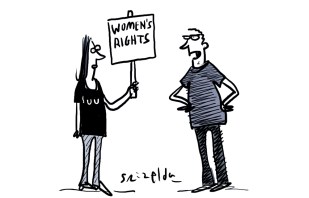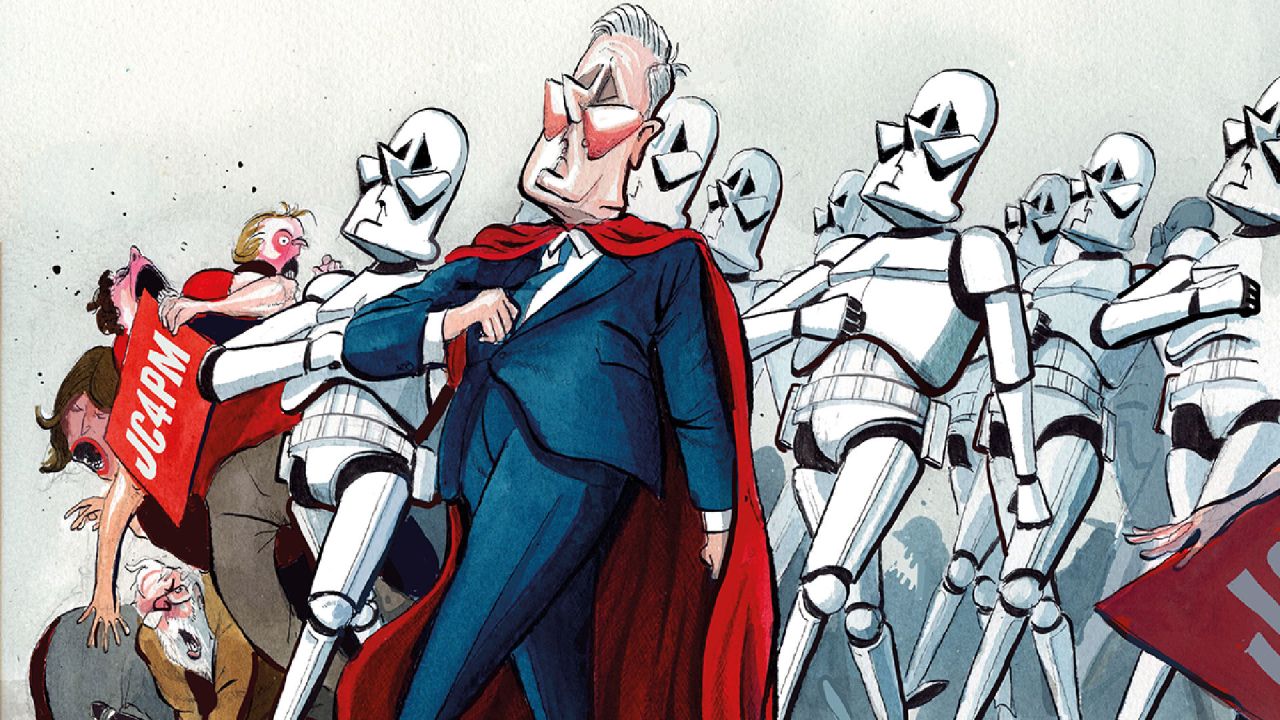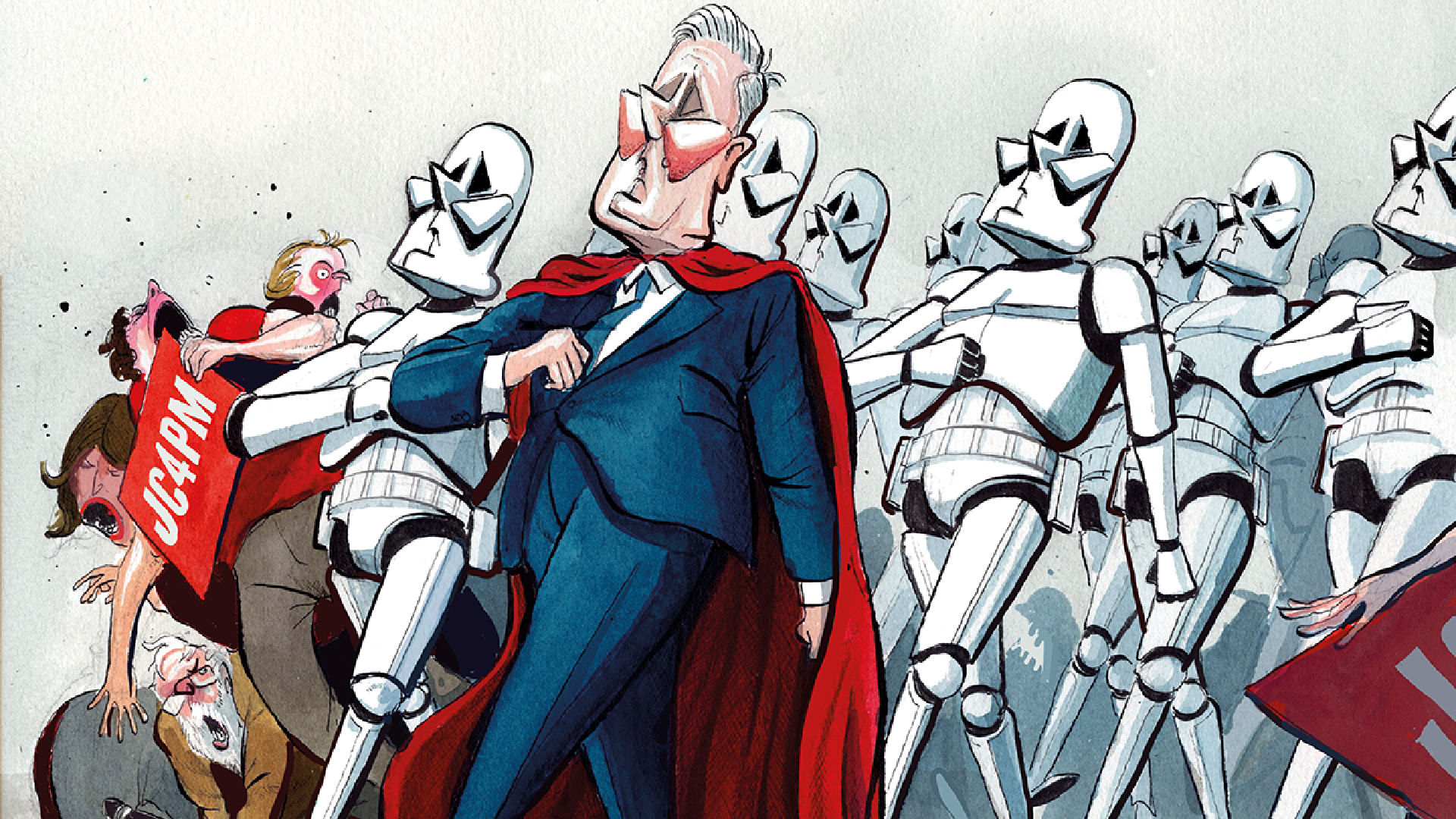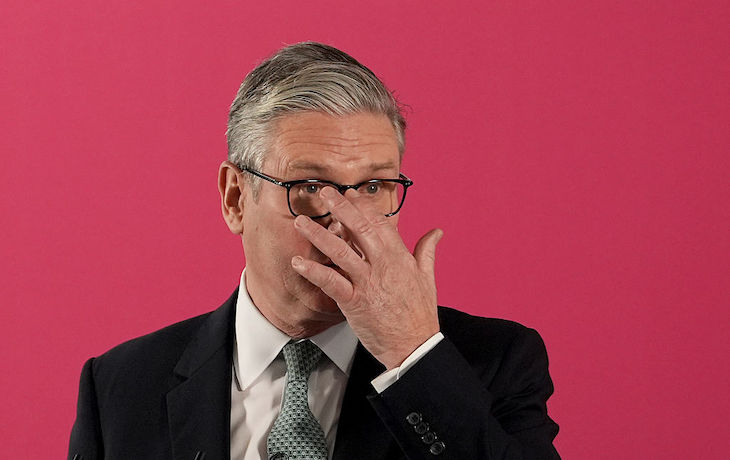Next month, Keir Starmer is expected to lead his party to victory in the local elections. The Tories are forecast to lose about half of their councillors who are up for re-election. If it’s a very bad night they could also say goodbye to Ben Houchen and Andy Street, the metro mayors of Tees Valley and the West Midlands. All this would confirm that Labour is on track for a super-majority at the general election. Yet there is one election Starmer’s Labour must fight the left to win: that for the North-East mayor, which takes place on 2 May.
The new mayoralty – which covers two million people from Northumberland to Co. Durham – is already the subject of internal party turmoil. Last year, Starmer blocked Jamie Driscoll, then Labour’s North of Tyne mayor, from standing for the bigger job. This led to protests from those who saw Driscoll – once described as the ‘last Corbynista in power’ – as the victim of a purge of left-wingers. Driscoll quit the party and pledged to run as an independent. He hopes to win enough support to send Starmer a message.
‘There is definitely a move to make the Labour party just the parliamentary party,’ Driscoll, 53, tells me. ‘Cutting off all influence from constituencies and trade unions, things like that, like the American Democrats. It suits the people that are driving it, but I don’t think it suits the people of the north-east. That’s the real irony, isn’t it? It’s about devolution, taking power out of London. But London decides who people are allowed to vote for.’
While the Labour party never gave an official reason for blackballing Driscoll, aides have pointed to the fact he once shared a stage with Ken Loach, the filmmaker who was expelled from the party in 2021 during the anti-Semitism inquiries. He suspects that Labour HQ was out to get him on any pretext. ‘They’d been trying to do it for ages. The back story to this is that I won in 2019 and I wasn’t supposed to.’
He has raised nearly £150,000 in donations for his independent campaign and last month he won an endorsement from Mick Lynch’s RMT union. He is also running from a position of power, as the North of Tyne mayoralty covers about 40 per cent of the new North-East authority. That power doesn’t extend to the finances exactly: we have to restart the interview when he runs out of free Zoom time. ‘That’s how tight local government is,’ he says. ‘We don’t even get the professional Zoom account.’
Driscoll has also maintained the support of the two most high-profile Labour metro mayors: Andy Burnham in Greater Manchester and Steve Rotheram of Liverpool City Region (who described Driscoll’s treatment as not ‘democratic or fair’). ‘Andy Burnham – I’ll say it now – I think he’d be a great prime minister,’ Driscoll says. Both he and Burnham are keen critics of the policies of the Labour leadership.
‘I know people who have left the Labour party who describe it as leaving an abusive relationship’
‘It’s really funny, I don’t see myself as particularly left-wing,’ Driscoll says. ‘I’d been on Newsnight and I was talking about the two-child benefit cap. Labour abandoned it and I was basically saying this is economically unwise. Keeping kids in poverty costs us a fortune in the long term, damages health, damages educational attainment. Aaron Bastani [a Corbynite commentator] said that, in any sane political culture Jamie Driscoll would be a centrist dad, which I took as quite a compliment.’ (Indeed in 2019 Driscoll got some flak when it was revealed that his children had briefly attended private school; they are now home-schooled.)
The question is whether Driscoll can gather enough support to disrupt the seemingly unstoppable march of the Starm-troopers. Team Starmer’s purge of anyone suspected of Corbynite sympathies has been strikingly successful. Kim McGuinness, the police and crime commissioner for Northumbria, is now Labour’s official North-East mayor candidate. But Driscoll says he has a trump card to play: he appeals to Tories. ‘No one in the North East defines me as left wing and in fact it’s amazing how many Tories have voted for me, including Tory councillors voting tactically.’ Why? ‘What they really like is that I haven’t put up the council tax and I’ve created a load of jobs’.
‘I actually get on very well with Andy Street,’ Driscoll says of the West Midlands Tory mayor (though polls suggest he will struggle to keep his seat). ‘I asked him would he be chair of the M10 [a group of metro mayors] when Dan [Jarvis] stepped down,’ he recalls. ‘It would have been better for us to have a Tory dealing with central government as chair, and he said thank you very much but I’m not going to be chair of ten Labour mayors.’
Metro mayors were created in 2017, not necessarily by popular demand. In fact, Newcastle, Sunderland and Gateshead all rejected mayors. They’re now getting what no one really asked for: a single elected figure to cover all of their areas, along with North and South Tyneside. The new North East Mayoral Combined Authority arrives 20 years after the idea of a devolved assembly for the north-east was rejected by voters by a three-to-one margin. The new authority was created in a direct deal with the councils: this time the public was not consulted.
The bigger authority is needed to deliver change, says Driscoll. ‘The north-east has had about 50 schemes trying to regenerate the economy over the past 40 years. We’ve had RDAs [regional development agencies], City Deals and all the rest of it. None has succeeded. The only one that has made any progress is metro mayors – it’s the one that can’t be controlled from London. You can’t wipe out the metro mayor easily,’ he says.

Driscoll started a venture capital fund while mayor; but there are some ways in which he plays up to the left-wing stereotype. He’s been more outspoken than Starmer on Gaza (‘I think Britain is quite clearly in breach of the arms treaty’) and he thinks Diane Abbott should be taken back into Labour (‘what she said was stupid, but she apologised immediately’). These sympathies are probably what would have marked him out as suspect for Team Starmer. The calculation will have been made that there would only be a minimal electoral price to pay.
This supposition is now being tested. Polls suggest Labour is losing environmentally minded voters to the Greens and there have been a series of councillor defections over Gaza. ‘The Labour party now is a mono-culture,’ Driscoll says. ‘I know people who have left the Labour party who describe it as leaving an abusive relationship – councillors across the north-east. There’s a steady stream of them.’ Last November, 11 councillors left Labour in Burnley; another 20 followed in Pendle earlier this month.
‘Let’s assume Jeremy Corbyn is going to run [as an independent], I think he will, I think he’ll win. Will Carla Denyer [the Green party co-leader] win in Bristol? I think she probably will. There will be other places where you suddenly find independents with 5,000 votes: people will say “where did that come from?” That will be the precursor to what happens next. It is not going to make a difference to the election outcome – that’s nailed on.’ Once Starmer is in No. 10, Driscoll thinks we’ll see a ‘Labour collapse in local government over the next term’, with independent and Green coalitions.
The Tories also often say that their recovery will have to start in local authorities. Driscoll says he fears a Conservative wipe-out. ‘If you have a Labour super-majority, there will be no effective opposition,’ he says. ‘But you’ll have an extremely unpopular government quite quickly. The Labour vote is extremely shallow. People want the Tories out – certainly in this part of the world – and I agree with them. But you are then going to have 200 Labour MPs looking over their shoulders thinking: “I’m going to lose my seat here.” People who are loyal to their base – or loyal to their beliefs – are the only people you can trust to be consistent.’









Comments